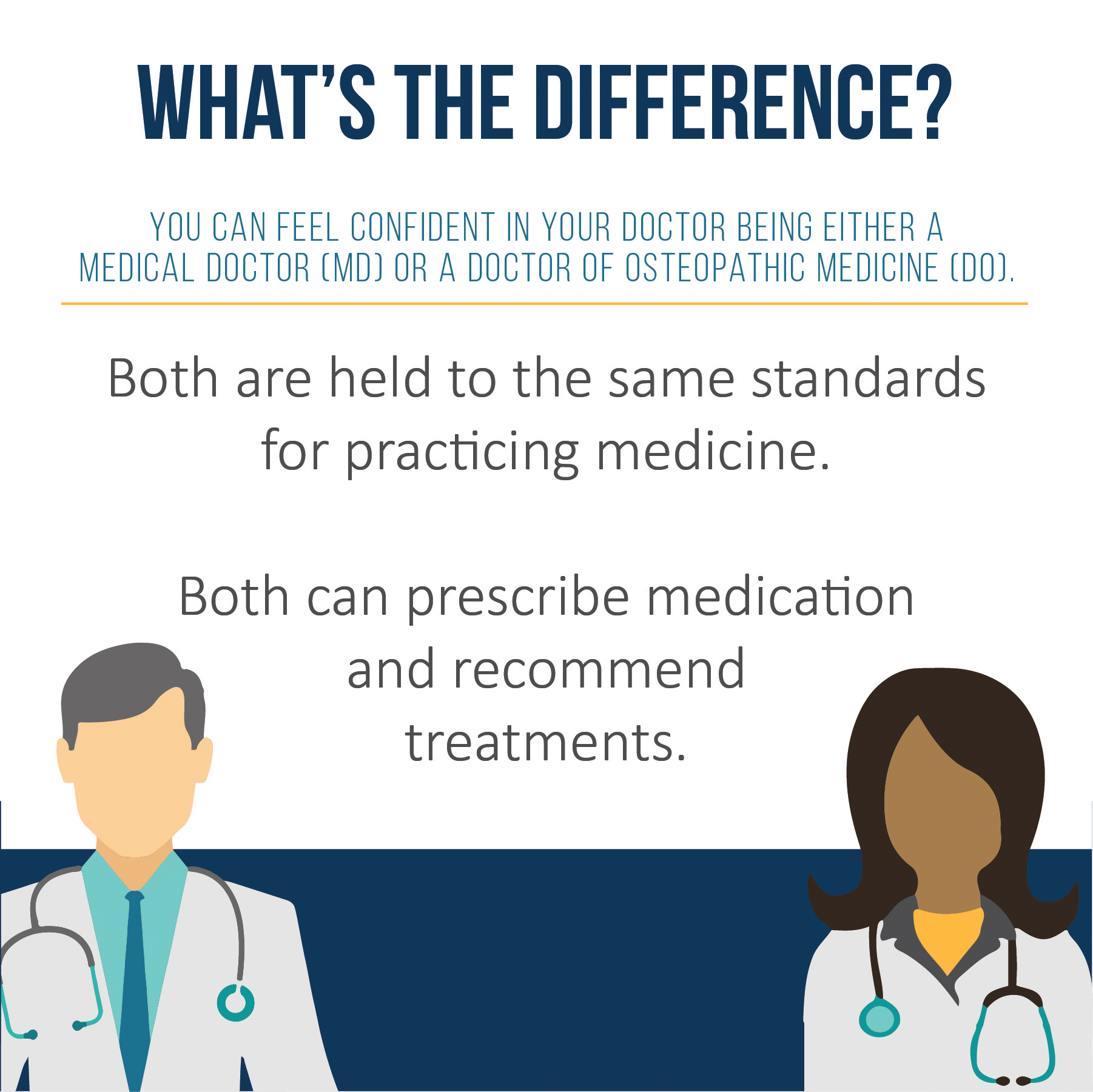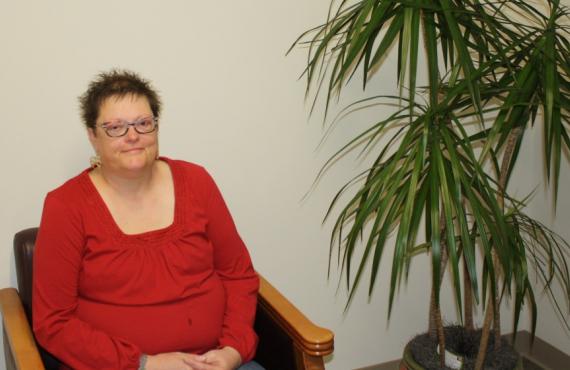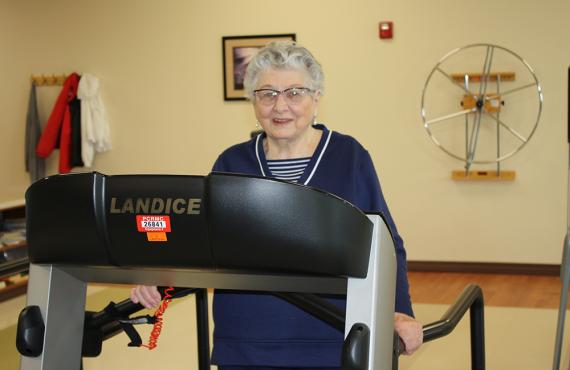Published on April 8, 2022

Read Time: Two Minutes
While it may seem like alphabet soup to some, the letters behind your healthcare provider’s name have particular meanings. These letters are their credentials, which show their level of education and ability to provide care.
Let’s take a look at what these credentials mean for patients and choosing their healthcare provider.
Physicians (MDs and DOs)
Physicians, or doctors, have completed advanced degrees, usually four years of medical school after earning a bachelor’s degree. Doctors also spend a few years in residency training, and sometimes a fellowship or internship, or both.
Physicians usually either have a medical doctor (MD) degree or a doctor of osteopathic medicine (DO) degree. Physicians with MDs practice allopathic medicine, which focuses on the diagnosis and treatment of diseases. Physicians with DOs practice osteopathic medicine, which some refer to as a holistic approach to care.
Both MDs and DOs are held to the same standards for practicing medicine, and both can prescribe medications and recommend treatments.

Advanced Practice Providers (APPs)
Other healthcare providers, who are not physicians, are sometimes referred to as advanced practice providers (APPs). The two most common types of APPs are nurse practitioners (NP) and physician assistants (PA).
These medical providers work closely with your physician to diagnose, treat and coordinate your care. Some nurse practitioners specialize in family medicine and are called family nurse practitioners (FNPs).
All nurse practitioners and physician assistants have the following:
- A graduate level education, such as a master’s or doctoral degree
- Board certification and license
- Specialized training
Nurse practitioners and physician assistants have a wide range of abilities and can do the following:
- Diagnose and treat acute and chronic conditions, including injuries and illnesses
- Perform procedures
- Prescribe medications and other treatments
- Manage a patient’s care
- Conduct hospital rounds and office visits
- Order, perform and interpret diagnostic tests, including labs and X-rays
- Assist during surgeries
Other Providers
Some other common credentials that healthcare providers have include the following:
- APRN – Advanced Practice Registered Nurse
- AuD – Doctor of Audiology
- CNM – Certified Nurse Midwife
- DDS – Doctor of Dental Surgery
- DMD – Doctor of Medicine in Dentistry
- DPM – Doctor of Podiatric Medicine
- LPC – Licensed Professional Counselor
- PsyD – Doctor of Psychology
At Phelps Health, we are committed to finding you the right healthcare provider in the right setting to receive the right care.
Find the Care You Need
Learn more about our healthcare providers at phelpshealth.org/doctors.

